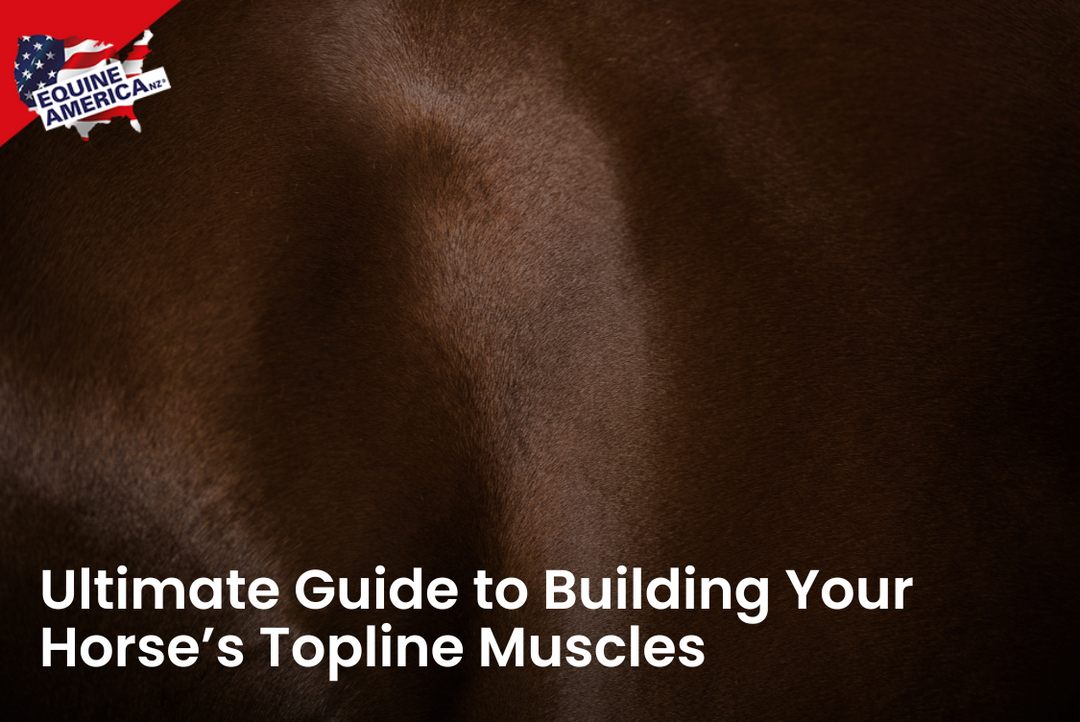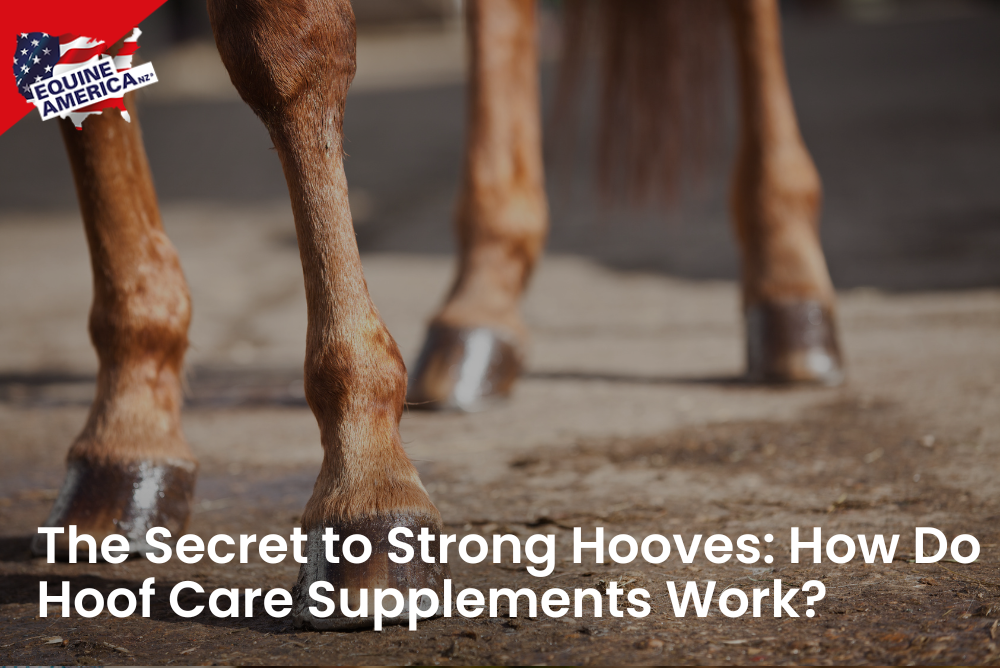Clicky joints are a relatively common occurrence in horses, and they can affect equines of all ages and backgrounds. These clicking or popping sounds, often emanating from the joints, can be a source of curiosity and, at times, worry. While clicky joints may not always indicate a severe issue, they are worth understanding and addressing to ensure your horse's continued health and comfort.
In this article, we will delve into the causes, treatments, and preventive measures for clicky joints in horses. Whether you're an experienced horse owner or a novice, this guide aims to provide valuable insights and solutions in an informative, friendly, and accessible manner.
Understanding Clicky Joints in Horses
Causes of Clicky Joints
- Age-Related Factors: Clicky joints can often be attributed to the natural aging process. As horses grow older, the wear and tear on their joints may lead to these sounds. It's important to understand that age-related clicky joints are a common occurrence and not necessarily a cause for immediate concern.
- Trauma and Injuries: Injuries, such as strains or sprains, can contribute to clicky joints in horses. Past traumas or injuries may leave a lasting impact on joint health, resulting in these audible sounds during movement.
- Arthritis: Arthritis is a prevalent cause of clicky joints in horses. It leads to joint inflammation, pain, and discomfort. Arthritic changes in the joint can result in the production of clicking or popping sounds when the joint is in motion.
Recognising the Symptoms
- Sound of Clicky Joints: One of the most apparent indicators of clicky joints is the audible sounds they produce. These sounds, which can vary from clicks to pops or creaks, often occur during the horse's movement. Observing and identifying these sounds is the first step in recognizing the presence of clicky joints.
- Changes in Horse's Gait: Pay close attention to any changes in your horse's gait. Horses with clicky joints may exhibit stiffness or an altered way of moving. Their gait may appear less fluid, and they might have difficulty executing certain movements.
- Signs of Discomfort: Horses with clicky joints might display signs of discomfort. This can include lameness, reluctance to move, or resistance to specific activities. Discomfort is an important symptom to watch for, as it may indicate the need for intervention and treatment to alleviate the horse's pain and discomfort.
Treating Clicky Joints in Horses
Conventional Treatments
- Veterinary Interventions: When dealing with clicky joints in horses, it's crucial to involve a qualified veterinarian. Veterinary interventions can include a thorough examination to diagnose the underlying cause of the clicky joints. Based on the diagnosis, the veterinarian may recommend specific treatments or interventions. These may range from joint injections to surgical procedures, depending on the severity of the condition. The goal is to address the root cause and provide effective relief for your horse.
- Medications: In some cases, veterinarians may prescribe medications to manage clicky joints. These medications can include non-steroidal anti-inflammatory drugs (NSAIDs) to reduce pain and inflammation. Your veterinarian will determine the appropriate medication and dosage based on your horse's specific needs. Medications can be a valuable component of a comprehensive treatment plan for clicky joints.
Natural Remedies
- Herbal Supplements: Herbal supplements have gained popularity for their potential to support joint health in horses. Ingredients like devil's claw, yucca, and boswellia are believed to have anti-inflammatory and pain-relieving properties. When considering herbal supplements, it's essential to consult with a veterinarian to ensure safety and effectiveness. Herbal supplements can complement other treatments and promote joint comfort in horses with clicky joints.
-
Massage and Physical Therapy: Massage and physical therapy are natural remedies that can benefit horses with clicky joints. Professional equine massage therapists and physical therapists can work with your horse to improve joint mobility, reduce muscle tension, and enhance overall comfort. These therapies aim to address the physical aspects of clicky joints and promote well-being. Working in consultation with experts in these fields can be a valuable part of your horse's treatment plan.

Preventing Clicky Joints
Diet and Nutrition
- Proper Nutrition for Joint Health: Proper nutrition plays a significant role in preventing clicky joints. Providing a balanced diet rich in essential nutrients such as glucosamine and chondroitin can support joint health. These nutrients aid in maintaining healthy cartilage and reducing the risk of joint issues. Consult with your veterinarian or an equine nutritionist to ensure your horse's diet promotes joint well-being.
- Foods to Avoid: Equally important is being aware of foods that may exacerbate joint issues. Limiting high-sugar and high-starch feeds can help prevent inflammation and promote overall joint health. Avoiding excessive sugar and starch intake can reduce the risk of conditions like laminitis, which can contribute to clicky joints.
Exercise and Care Practices
- Suitable Exercises: Regular, suitable exercise is essential for preventing clicky joints. Exercise helps maintain joint mobility and muscular support, reducing the likelihood of joint issues. Tailor exercise routines to your horse's age, activity level, and any pre-existing conditions. Ensure that the exercise is appropriate and does not strain the joints.
- Proper Care and Maintenance Routines: Implementing proper care and maintenance routines can go a long way in preventing clicky joints. This includes regular farrier visits for hoof care, maintaining a clean and comfortable living environment, and ensuring that your horse's overall well-being is a top priority. Proactive care practices contribute to the prevention of joint issues and support your horse's long-term health.
The Best Joint Supplements for Horses
When it comes to supporting your horse's joint health, supplements can be a valuable addition to their care regimen. In this section, we'll explore two primary categories of joint supplements: Glucosamine and Chondroitin, and Herbal Supplements.
Glucosamine and Chondroitin
How They Work:
Glucosamine and Chondroitin are commonly used supplements for joint health in horses. They work by providing essential building blocks for healthy cartilage and joint function. Glucosamine supports the production of glycosaminoglycans, a key component of cartilage. Chondroitin helps maintain cartilage elasticity and hydration. Together, these compounds can promote joint lubrication and cushioning, reducing the risk of joint issues and supporting existing joint health.
Dosage Recommendations:
Dosage recommendations for Glucosamine and Chondroitin can vary depending on the specific product and your horse's individual needs. It's essential to consult with your veterinarian or an equine nutritionist to determine the appropriate dosage. The dosage is often based on factors such as your horse's weight, age, and the severity of joint issues. Following professional guidance ensures that your horse receives the right amount to support their joint health effectively.
Herbal Supplements
Popular Herbs for Joint Health:
Herbal supplements for joint health in horses have gained popularity due to their potential natural benefits. Some popular herbs used in these supplements include:
- Devil's Claw: Known for its anti-inflammatory properties, Devil's Claw can help reduce joint discomfort.
- Yucca: Yucca is believed to have anti-inflammatory and analgesic effects, which can provide relief from joint pain.
- Boswellia: Boswellia is known for its anti-inflammatory properties and is often used to support joint comfort.
Effectiveness and Safety:
The effectiveness and safety of herbal supplements can vary based on the specific herbs and formulations. While these supplements can provide natural support for joint health, it's essential to consult with a veterinarian or equine health expert before introducing herbal supplements to your horse's diet. They can assess the suitability and safety of herbal supplements based on your horse's unique needs and health condition.
Final thoughts
Understanding and managing clicky joints in horses is essential for ensuring the well-being and comfort of your equine companion. In your journey to prioritize your horse's joint health, it's essential to work closely with a veterinarian or equine health expert. They can provide guidance tailored to your horse's unique needs and ensure the most appropriate treatment and preventive measures.
Remember, your horse's well-being is a top priority. If you're looking for high-quality joint supplements, consider exploring the range of products offered by us here at Equine America NZ. Your commitment to their joint health ensures a long and comfortable life for your beloved equine companion.
Please give us a call at Equine America NZ today at 0800 440 888 to learn more or leave an enquiry.




